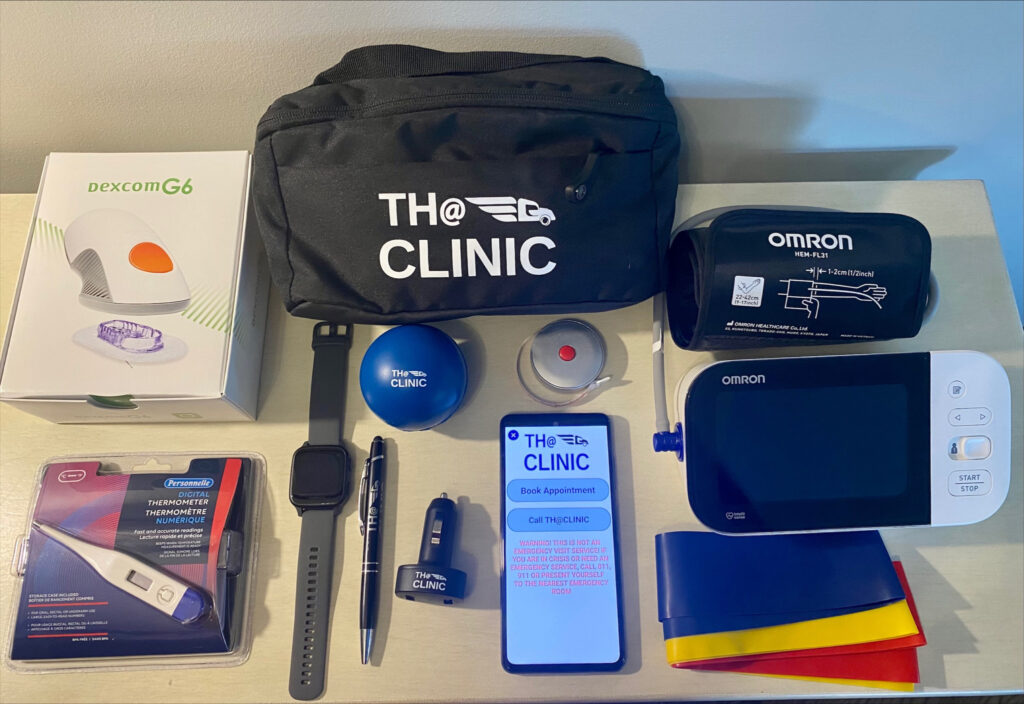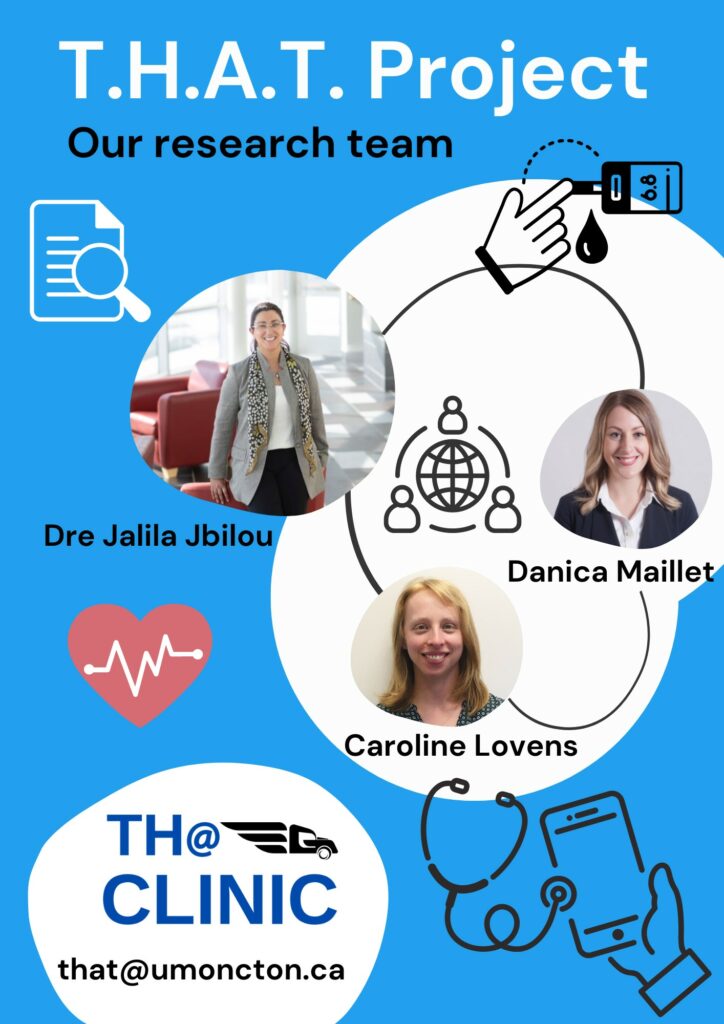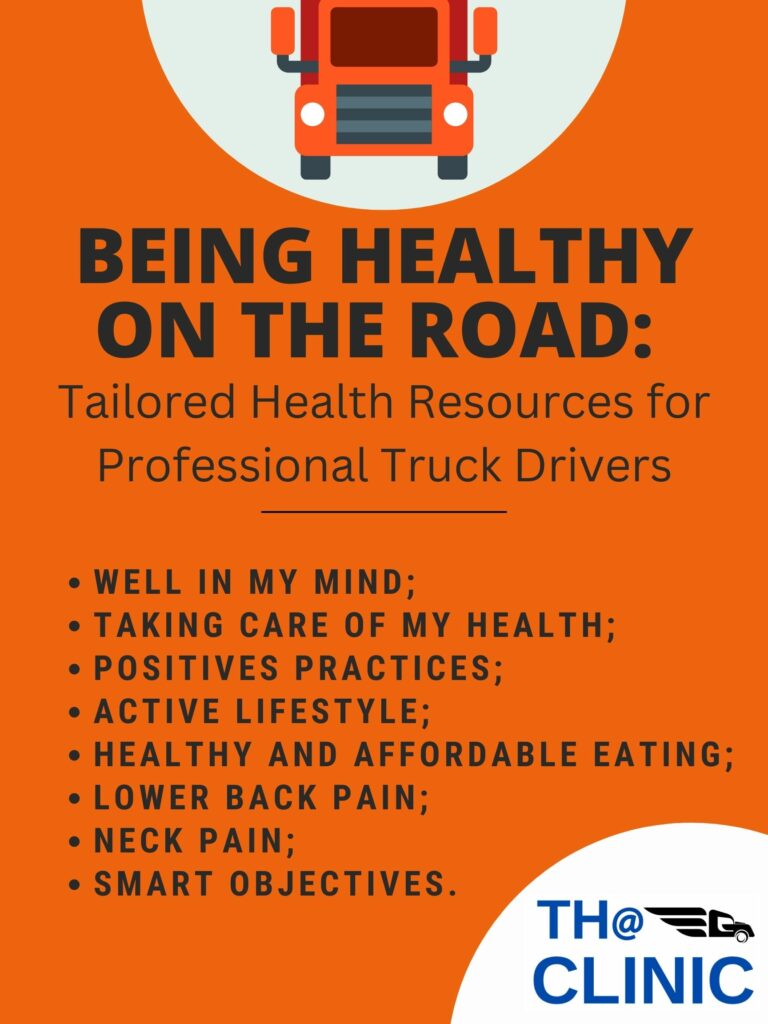Digital tools keep track of truckers’ health
Research indicates that cardiac disease, diabetes, obesity, hypertension, sleep apnea, hypercholesterolemia, and back pain are prevalent among truck drivers. The scarier news is one in two truckers suffer from at least one of the above diseases or conditions that could lead to an early death.
University of Moncton researcher Dr. Jalila Jbilou wanted to dig deeper into truckers’ health.

The community medicine specialist is conducting a study involving 200 drivers in New Brunswick, offering timely and accessible services on the road to improve their health.
“Their willingness to engage with their health was the driver for us in this project,” Jbilou said.
Truckers told Jbilou they didn’t want to miss a day of work to go see a doctor, so she adapted the services. Her team has provided drivers with a smartphone, smartwatch, blood pressure monitor, blood sugar monitor, thermometer, resistance bands and stress balls, and educational material in English and French.

The Truckers’ Health Adaptive Technology (THAT) project, slated for completion in 2025, delves into physical, mental, and social health of the driver. Participants are being recruited, mostly through word of mouth, until June 2024 and are randomly assigned to an experimental or a control group.
Those in the experimental group have access to a full set of services. The people in the control group use current available services. “We are trying to understand the challenges they face under the current services,” Jbilou said.
If a driver in the control group has major health problems, they are moved to the experimental group and another person is recruited to replace them.
Some of the drivers used flip phones and were technologically challenged. The team helped improve their e-literacy, sometimes creating email addresses for them, and showing them how to use a smartphone. “They were open to being trained and using new technology. It was a way to get closer to them. They loved it and they understood that we are here for them,” Jbilou said.
Drivers can video conference, call or text
The interdisciplinary clinic is led by a nurse who collaborates with a doctor, pharmacist, occupational therapist, and social worker. Drivers connect with the nurse through the cellphone platform, interacting via video conferencing, phone call or text.
“An appointment is set up within 24 hours, sometimes it could be the same day or day after if available,” Jbilou said.
Since drivers are tracked by GPS, they can call in an emergency and the nurse will direct them to the nearest service.
Jbilou said, “Emergencies and complications can be avoided by acting early. People are healthier and even if they have a chronic condition, it is controlled, and they don’t need that many services.”
Educational material provides tailored information about active living on the road. Exercises are explained using the stress balls and resistance bands provided.
Use water bottles to exercise
There are exercises using weights and drivers are told to use water bottles instead if they don’t have weights in the truck. They are then advised to drink that water after the workout. Drivers are reluctant to drink a lot of water because it makes them urinate and they don’t want to stop. “We explained it is unhealthy not to drink water,” she explained.
There are also two manuals – for neck and lower back pain – developed after requests from participants. Soon, four med students are going to work on how drivers can avoid getting hemorrhoids and constipation.
Healthy food options are listed for trips lasting a day, three days, and a week or more. Drivers are also educated on how to shop for groceries – whether they have a refrigerator or not. Prices are mentioned and cost of healthy food is compared to unhealthy options on the road. There is also information on excessive consumption of coffee and pop, and education on smoking and drugs.

Mental health is another focus of the study. Physical exercises are listed for relaxation. Recordings offer guided mindfulness meditation and breathing, for five and 20 minutes, depending on how much time the driver has available.
The team creates contests like “10 km in 10 days” for the drivers and the winner receives a gift card. One driver lost 18 pounds in three months with no medication, Jbilou said.
All participants receive a baseline checkup and blood test. The follow-up is after 12 months to see how the program helped improve knowledge, attitude, behavior, and health outcomes. The research team also plans to ask participants to provide a follow-up after two years.
Jbilou and her team aim to produce policy briefs and advocate for health solutions after six months of follow-ups for all participants if the study results are positive so that it can be scaled up.
“We want to impact health services and the system to make it more responsive to the needs of vulnerable populations,” she said. Since the average of truckers is 55 years, they are comparable to seniors. Jbilou said this kind of program could help seniors living in rural and isolated areas.
Have your say
This is a moderated forum. Comments will no longer be published unless they are accompanied by a first and last name and a verifiable email address. (Today's Trucking will not publish or share the email address.) Profane language and content deemed to be libelous, racist, or threatening in nature will not be published under any circumstances.